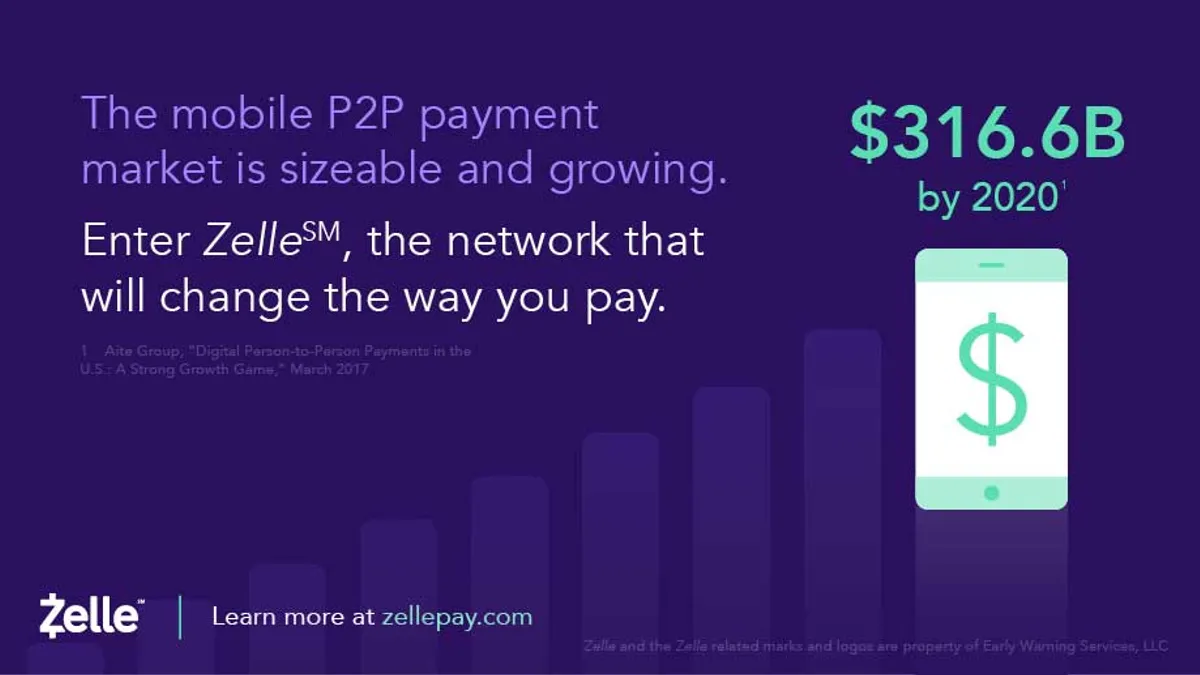Dive Brief:
- Zelle announced its official launch this month as person-to-person (P2P) mobile banking service with a press release. The service will eventually roll out to include more than 30 financial intuitions over the next 12 months and allows users to send and receive money via an email address or mobile phone number from within mobile banking apps.
- The participating banks include: Ally Bank, Bank of America, Bank of Hawaii, Bank of the West, BB&T, BECU, Capital One, Citi, Citizens Bank, Comerica Bank, ConnectOne Bank, Dollar Bank, Fifth Third Bank, FirstBank, First Tech Federal Credit Union, First Tennessee Bank, First National Bank, Frederick County Bank, Frost Bank, HomeStreet Bank, JP Morgan Chase, KeyBank, M&T Bank, MB Financial Bank, Morgan Stanley, PNC Bank, SchoolsFirst Federal Credit Union, Star One Credit Union, SunTrust Bank, TD Bank, USAA, U.S. Bank, and Wells Fargo.
- The Zelle Network handled more than 51 million transactions in Q1 this year totaling more than $16 billion.
Dive Insight:
Zelle was first announced last October as a competitor for Square Cash, PayPal and Venmo, created by payment and risk solutions company Early Warning and backed by Wells Fargo, JPMorgan Chase, Citibank and Bank of America.
While Zelle has the support of a wide range of financial institutions, PayPal has two players in the space as it also owns Venmo. Zelle is looking to make the P2P payment space competitive, but Venmo put its first ad dollars into play last September with a TV campaign that ran on MTV and Comedy Central targeted toward millennials.
The peer-to-peer money transfer market is highly competitive. The well-established Square Cash and the PayPal/Venmo pairing create serious hurdles for a new player in the space. Zelle's strength — its ties to big banks — may help it gain footing given that it can leverage existing customer trust. It could also leverage existing user behavior, as the ability to send digital payments from person-to-person will reside within the mobile banking apps of Zelle's partner institutions.














